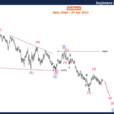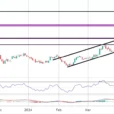
Sprint (NYSE:S) delivered a mixed second quarter earnings report where the company returned to net additions in postpaid subscribers, but failed to meet both top and bottom line estimates. Sprint reported revenue of $7,975 million, down 6% Y/Y and below consensus estimates of $8,166 million. The company reported a net loss of $585 million, or EPS (negative) of $0.15 compared to a loss of $765 million or EPS (negative) of $0.19 recorded during last year’s comparable quarter. The company’s adjusted net loss of $0.13 per share was significantly wider than the consensus estimate of $0.09. Adjusted EBITDA of $2,008 million, however, topped estimate $1,967 million.
Sprint Earnings Q2 2015: The Bright Side
Sprint’s postpaid phone net subscriber addition of 237,000 marked the first quarterly addition by the company in years. Sprint’s postpaid net additions of 553,000 were a huge improvement over the net loss of 272,000 recorded during last year’s comparable quarter. Total net additions of 1.1 million was almost double last year’s total net additions of 590,000.
Sprint said that it expected full year adjusted EBITDA to clock in at the lower end of its guidance of $7.2 billion to $7.6 billion.
The wider-than-expected loss sent Sprint shares tumbling 8% in after-hours trading.
Sprint Earnings Make For A Turnaround Bid?
Sprint is in the middle of a turnaround bid as it tries to catch up to its more illustrious rivals AT&T (NYSE:T), T-Mobile US (NASDAQ:TMUS) and Verizon (NYSE:VZ). Sprint subscribers have in the past fled in droves due to the company’s comparatively inferior network and higher prices compared to that of T-Mobile’s, its chief competitor. Sprint has been trying to win back subscribers through a mixture of infrastructure upgrades and promotions.
Chief executive Marcelo Claure is on record saying Sprint has a goal to become a top-tier wireless network in two years. That will not come easy considering that Sprint is ranked dead last when it comes to data speeds. Although Sprint has made impressive progress as far as improving phone calls and text messaging, it still lags its rivals in coverage especially in large markets. Verizon is usually ranked as having the best wireless coverage closely followed by AT&T. Meanwhile, T-Mobile takes the cake for the fastest network.













Leave A Comment